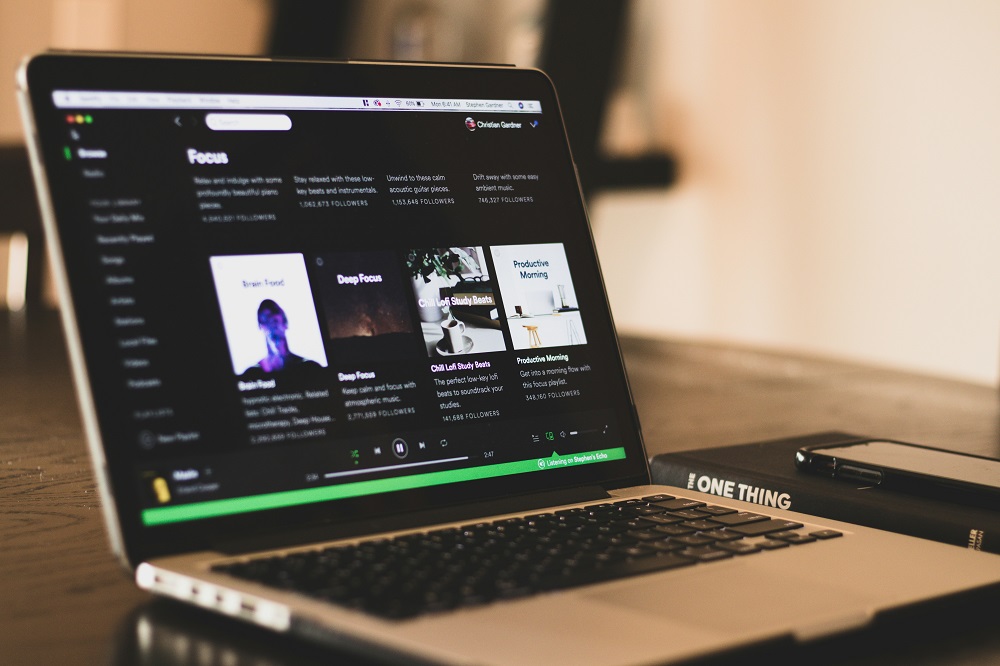Spotify's 600 million users are encountering one of the streaming service’s most anticipated events: Spotify Wrapped.
Since its inception in the year 2016, Spotify Wrapped has witnessed major success, especially because of the cultural obsession with self-discovery and finding explanations for listener's behavior.
The annual user listening report offers each Spotify user a compilation of data about their activity on the platform, celebrating their top songs, artists, albums, and podcasts with colorful graphics primed to be shared across social media.
Besides the normal whiplash of seeing that one artist or song in the top five that you swore up and down you did not like or the painful realization that your taste in music contradicts the oeuvre of mystique and niches you have been trying so hard to build. However, the current interface of Spotify Wrapped is giving rise to many questions about how much of the listening patterns were caused by the users' volition.
Understanding Spotify Wrapped
Spotify Wrapped is a personalized annual breakdown of everything a user has listened to in the last 12 months in the form of a short and sweet slideshow.
The list includes their favorite artists, how much time they spent listening to music and podcasts, and which genres they’re the biggest fans of. These are just some of the highlights of the Wrapped rundown. At the end of the presentation, the user gets a personal playlist of the top 100 songs that got all the love in the last year.
For a lot of Spotify users, this is an annual event they look forward. Its popularity across social media is undeniable. A big part of people's fun with Spotify Wrapped is sharing their outcomes on social media platforms. Within mere hours of a release, post after post, people sharing their personalized playlists and top songs flood every Instagram and TikTok feed. However, while maintaining the fun and unserious tone that began with the annual event, it has become yet another way for people to curate an idealized image of themselves they want the world to perceive.
Spotify Wrapped playlists are autogenerated and cannot be edited. However, users are making certain changes to their Spotify Wrapped. This includes:
- Tweaking their 'Your Top Songs' playlist: Users are able to remove songs from their Your Top Songs playlist.
- Changing consumption behavior: Users can listen to music on YouTube instead of Spotify, so it does not appear on their Spotify Wrapped. They can also play music on YouTube with low volume on Spotify, so it counts towards their statistics.
Spotify Wrapped is based on listening data from – January 1 to October 31. Spotify uses this cut-off to ensure they have enough time to quality-assure the site and finalize assets for Wrapped.

Many believe that listeners can manipulate their Spotify Wrapped in order to create a socially acceptable image. However, others believe that the point of Spotify Wrapped is to listen to music that moves the listeners and then watch the slideshow about it at the end of the year.
Is the Label Meddling to Blame for Spotify's Repetitive Algorithms?
Over the past couple of years, Spotify has embraced artificial intelligence. Spotify introduced an AI-powered DJ early last year to make the music listening experience more interactive.
Spotify’s incentive is to keep us on the platform as long as possible. They achieve this by keeping the user comfortable, almost to the point of mind-numbing redundancy. When a user's listening patterns are determined by algorithms, potential label tampering, and the echo chambers they create, reports like Spotify Wrapped become less of a reflection of a user's personal taste and more of a reflection of whatever Spotify allows within reach.
Spotify Daylists are regularly updated playlists designed on niche music and microgenres a user listens to at a particular time during the day or on specific days of the week. Daylists are most known for their kitschy AI-generated titles.
Through all the AI features it boasts, Spotify makes its hyper-personalization a major draw. Its user-specific algorithm helps create echo chambers that feed the same artists, songs, genres, and overall vibes. But at what point does this hyper-personalization become incredibly impersonal?
There is no proof that labels are in cahoots with Spotify and other streaming platforms to boost streams for their artists. However, user experiences point to the fact that this could be happening. The pattern exhibited by Spotify is Discovery Mode, a marketing tool that authorizes artists and labels to get certain tracks into users’ personalized playlists, Spotify Radio, and Spotify Mixes. The effects of performative activism and its use as a marketing strategy by brands are ultimately appealing to moral and social identities to sell their products.
With so much exterior meddling in the Spotify algorithm, the listener often wonders if their listening habits are truly their own or if they have been thrust upon them.
-
Social Perfectionism & Loss of Personality
It is bizarre that even with the usage data for a music streaming application, there are still concerns about how others perceive us. Perfectionism can be harmful on its own. In addition to being perceived by others in the mix, it becomes an even greater stressor. The obsession with appearing socially and morally perfect can be extremely unhealthy and unrealistic. When users become more concerned with presentation and how others view the above earnestness and honesty, they become disingenuous.
With Spotify Wrapped, black-and-white thinking is counterproductive. The whole point of art is that it is supposed to be a personal experience that connects like minds. However, the balance between the personal and the public experience is often thrown off, as today, personal experiences have become rebranded as being unique. The moment certain music is titled cringe, basic, or bad, only a select group of artists is acceptable, shutting down space for personality. To be socially acceptable, everyone has to like the same things and echo the same praises.

-
Promoting Toxicity & Intolerance for Variance
Sadly, fostering a boring community is not the only downside to this way of approaching art. It further encourages intolerance to deviation from the communally defined norm. Going hand-in-hand with moral perfectionism is the unreasonable intolerance for any sort of disagreement. Over the years, casual hostility has become more commonplace on platforms like Twitter. Threats of violence, unsubstantiated accusations motivated by a need to feel justified in disliking somebody, along with constant bad faith readings just for the sake of social-media-clout-bait jokes on Twitter and TikTok, are on the rise.
Final Thought
The whole point of Wrapped, to begin with, is to listen to the music that moves us and then watch the vibrant little slideshow about it at the end of the year.
While it’s easier said than done, we need to remind ourselves that, at the end of the day, we can only control our own words and actions and not the way the world perceives us. Your music taste and what you happened to have listened to this past year should not even come remotely close to something to feel embarrassed about.
Your Spotify Wrapped indicated that you had fun! And as long as you are having fun, and if that happens to be cringe, that’s fine. Keep enjoying it! In today's filter-lensed world, it is better to be your cringe-but-genuine self than a personality-void person, mirroring everybody else's behavior.
A leader in Market research, SG Analytics enables organizations to achieve actionable insights into products, technology, customers, competition, and the marketplace to make insight-driven decisions. Contact us today if you are an enterprise looking to make critical data-driven decisions to prompt accelerated growth and breakthrough performance.
About SG Analytics
SG Analytics (SGA) is an industry-leading global data solutions firm providing data-centric research and contextual analytics services to its clients, including Fortune 500 companies, across BFSI, Technology, Media & Entertainment, and Healthcare sectors. Established in 2007, SG Analytics is a Great Place to Work® (GPTW) certified company with a team of over 1200 employees and a presence across the U.S.A., the UK, Switzerland, Poland, and India.
Apart from being recognized by reputed firms such as Gartner, Everest Group, and ISG, SGA has been featured in the elite Deloitte Technology Fast 50 India 2023 and APAC 2024 High Growth Companies by the Financial Times & Statista.

